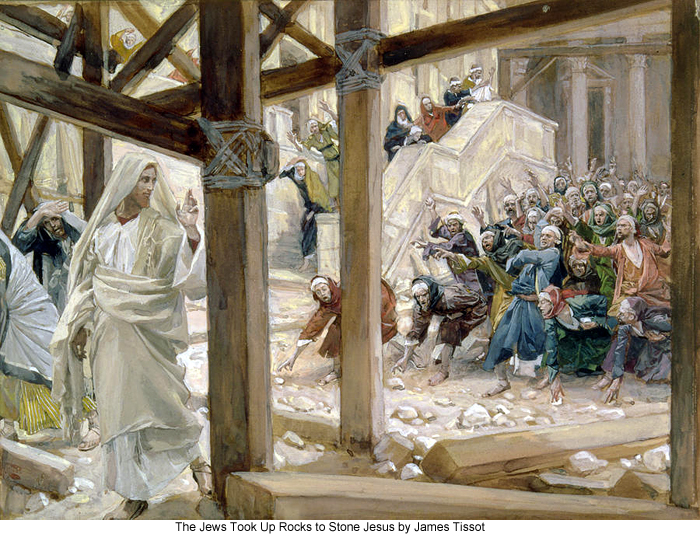Today’s readings remind us that one of the greatest blessings we’ve received from God is the power to decide, and also the responsibility of being able to decide. We’re free to choose, but that also means we’re free to choose something bad. Lent is a time when we remember and repent for the horrible choices we’ve made personally and as God’s people, and today’s readings show us how we go into these messes and how we can get out of them.
Today’s First Reading reminds us how temptation works, and that we have to take responsibility for our actions, because “the Devil made me do it” and “I didn’t know any better” are so often old, tired, and specious arguments. Adam and Eve had life breathed into them by God himself. We came from dust, which is why every Ash Wednesday one of the formulas for administering the ashes is “Remember that you are dust, and to dust you shall return.” God created paradise for Adam and Eve, and he also created limits. These limits were for their own good. They could eat the fruit (freedom), but they didn’t think of whether they should eat the fruit (consequences). All the serpent had to do was sow doubt about whether God really had their best interest in mind. Eve considered her options and ate; Adam just seems to follow her lead, and the deed is done.
In today’s Second Reading Paul reminds us that Adam’s decision, as the head of humanity, had consequences, and so does the New Adam’s (Our Lord). Adam, as the head of humanity, was entrusted with its wellbeing throughout the generations. He sinned and lost it all, just like a gambler squandering his family’s livelihood and going bust. One of his sons murders the other out of envy, and death enters into the world, showing the effects of sin. That Original Sin of Adam ushered in death for us all. That is the power and consequence of making decisions. Eve soon led Adam to sin: sin never stays at home, it spreads, just like the consequences of Original Sin spread throughout history, and death reminds us of sin and its consequences.
Yet this power of decision has an even greater potential for good than for evil. Christ, the New Adam, ushers life back into humanity through his good decision. Christ, by becoming man, became the new head of humanity, since he was its greatest example (and still is). He decided to lay down his life out of love for the Father and for us, and through his decision he conquered sin and death for us all.
In today’s Gospel the garden of temptation has been replaced, ages later, as a desert of temptation. Our Lord fasts and prays before beginning his public ministry, and, like all of us, he too has to face temptation in making the right decisions. He does so to teach us how we can face and overcome temptations in order to decide well. The devil tempts him to turn stones to bread in order to satisfy his hunger. Eve saw the forbidden fruit as good for food. Jesus could turn that stone to bread in a snap. But he replies: “One does not live on bread alone.” There are more important things to life than just filling your stomach. These stones being stones, and Jesus being hungry are all part of God’s plan, all part of God’s will. God’s will for us and for others should always shape our decisions.
Since the devil saw that Jesus was a scriptural man, he tried to use some scripture of his own. He took him to the top of the Temple in Jerusalem. The devil insisted that Jesus demand proof of God’s protection, and he had the gall to back it up with Bible verses.We need to have faith in God to make good decisions. Scripture helps us to know his will, not just justify our actions. We can try to make a Biblical case, but it is God who justifies or condemns our actions, not us.
Eve saw that the fruit was good for wisdom, for a knowledge that would make her like God. The devil showed Jesus in an instant all the kingdoms of the world, and all Jesus had to do was grovel at his feet. He offered Jesus everything except the one thing the devil wouldn’t give up: being number one. Jesus stayed focused on who was really number one: his Heavenly Father and the mission he had received —“The Lord, your God, shall you worship and him alone shall you serve.” Serving God should always shape our decisions. If he is not in first place, our decisions will take a bad turn.
As we head into the desert with Our Lord this Lent, let’s ask him to help us to identify and resist the temptation in our lives right now.
Readings: Genesis 2:7–9, 3:1–7; Psalm 51:3–6, 12–13, 17; Romans 5:12–19; Matthew 4:1–11.


